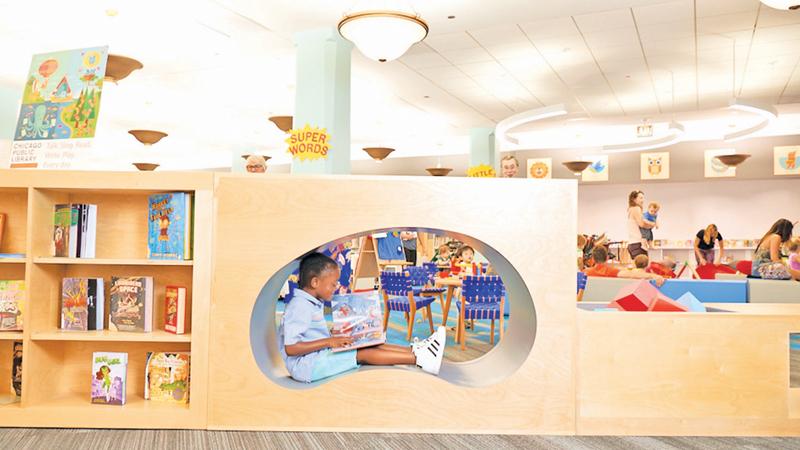
Whenever we open a book, we can find something new. It may be a beautiful story that we love to read or a detective story that arouses our feelings.
Anyhow, we can learn something new. A book can be said to be a gate to the new world. A library is the place where you can enrich your mindset with knowledge. In the library world you will find children’s libraries where there are books for children.
The highly committed staff members have devoted themselves to guide children in the library. Speaking of the role of librarians, it can be said that most librarians seem to have turned a blind eye to their responsibilities.
First, we have to make children’s libraries pleasant for children. Needless to say that children abhor seeing book shelves over-loaded with books, tables swamped with heaps of moth-eaten files and papers, strict librarians and staff members looking like demons. Unfortunately, most librarians are of the opinion that “if you want, come and read or else just leave.”
What should be drilled into the Sri Lankan librarians’ minds are the five laws of Library Science. Libraries depend on both financial and human resources and come in a variety of forms. Children can be identified as a unique group of readers who gain knowledge through books or by other means. The article discusses the ways in which libraries can provide effective service for children.
Show the way
“Few children learn to love books by themselves. Someone has to lure them into the wonderful world of the written word; someone has to show them the way.”…Orville Prescott from “A Parent Reads to his Children.”
 Speaking of story time, it should be considered as a part of the daily library routine. By reading aloud books or magazines,children can build up their vocabulary bank and improve their listening, comprehension and observational skills. One’s listening skills lays the foundation for reading books.
Speaking of story time, it should be considered as a part of the daily library routine. By reading aloud books or magazines,children can build up their vocabulary bank and improve their listening, comprehension and observational skills. One’s listening skills lays the foundation for reading books.
For instance, if a child is in the habit of reading novels or short stories, he can have a collection of novels as he grows up. Both teachers and parents also should encourage children to read books apart from their school syllabus.
Sadly, most parents are unaware of the importance of narrating stories for their children. As noted by researchers, there can be found main contributing factors to this decades-long issue. Most parents either tend to show a reluctance to the reading habit or can not allocate time for reading a book. A library, if properly designed, can play an important role in this regard.
But how can we do it? We can stimulate children’s minds towards the reading habit in a creative manner so that they do not feel that they are going to read a book in a library. We can organize some interesting activities for children.
For instance, story time. Storytime can cover many areas such as narrating stories in all three languages, reciting poems, Performing finger plays,singing action songs, hearing and reciting poems, having quiz competitions and doing puzzles. It is clear that children can certainly enjoy doing puzzles.
We should not forget that puzzles can improve children’s reasoning skills, concentration and memory. Games also encourage cooperation among others and promote social skills. The other possible activity is performing a drama with children with simple costumes and props. Moreover, libraries offer countless opportunities to engage readers in sharing information. They should be encouraged to ask questions. Their active involvement can create a proper learning environment in the library.
Miscellaneous activities
Activities that can be done in libraries are boundless. Programs depend on the resources, the talent and interests of library staff. A large library in Accra promotes free twice-weekly literacy classes, a wildlife club, and two football teams. Although the range of programs seems to go beyond the typical library definition, books and other publications are still the essential components of libraries.
